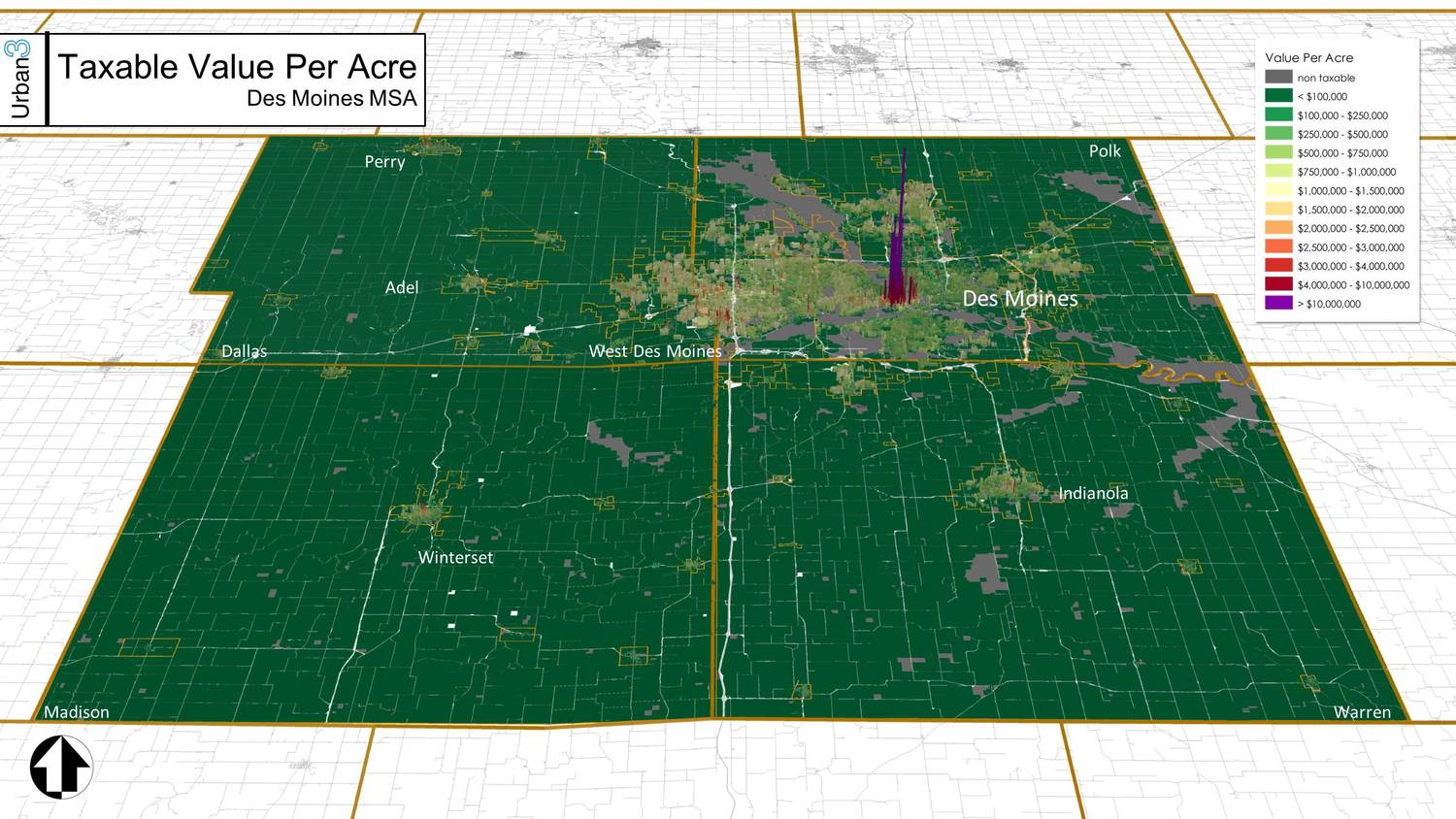Again...this is the second time you've made a claim implying it was a point I was making (and it wasn't) and then refuted it. You are talking past what I am trying to discuss, instead of addressing what I'm saying head on. I'm not trying to be an ass, but I'm not going to hand-hold the conversation much longer if you aren't interesting in engaging honestly/directly. This is a dollar and cents conversation....it can be very productive.....but at the rate you and I are going, it isn't heading that way. (I'll grant some space for that fact that maybe I'm doing a lousy job making my point(s)>"
The dollar figures in the Wells Fargo example are of public record. These aren't hypotheticals. These are black and white examples of how different development styles essentially do or don't pay for their existence.
Then how does a small town ever exist? Should they just build one Condo tower and tell everyone they have to live in the tower? Because I can tell you that the tower would sit mostly vacant and the town would be bankrupt in no time.


